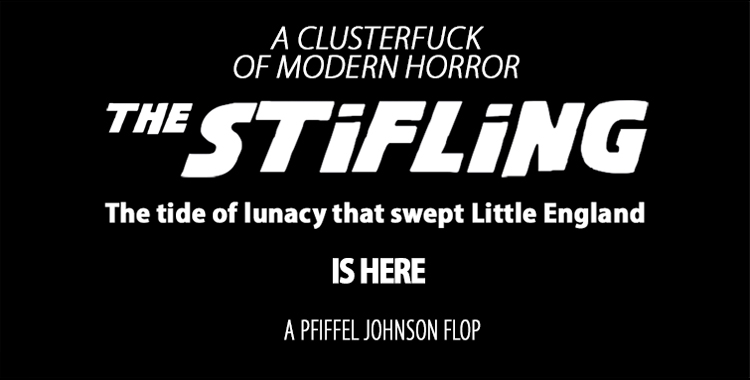Above: The Great Fire of London, 1666. Wikicommons.
I’ve been meaning to write a blog about Brexit for a very long time, but the story has been unfolding so fast, and the ramifications have been so many and so vast, that I keep on procrastinating. One of the problems is that the most worrying aspect of the Brexit vote is that its meaning cannot be at all easily defined. Much nonsense has been spoken about the ‘will of the people’, as if it were one undivided, homogenous thing, when in truth the nation is in a very split mind indeed about the whole subject. (See my earlier blog on this.)
The referendum vote was surely a perfect example of the kind of ‘decision’ that is made by ‘people who are unable to determine the possibilities of an outcome, [being] based almost entirely on emotion rather than experience’. That quotation, by the way, comes straight from a dictionary definition for an irrational decision.
Indeed, the most troubling thing about the Brexit vote has been the very strange and indefinable complex of irrational emotions that have surrounded it. One of the oddest aspects of it was how, on the very morning of their ‘victory’ (because they indeed saw their rather slim majority vote as simplistic ‘victory’ over a vague opponent that could be roughly labelled ‘continental Europe’), huge numbers of Leavers were angrily telling the Remainers to ‘get over it’. Who ever before heard of ‘victors’ being bitter and angry in the very hour of their victory?
Me neither.
Not to mention ‘getting over something’ before the process of implementing it has even started.
A little later they told us we must ‘make a success of it’ (Boris Johnson even went so far as to say in November that we’d ‘make a Titanic success of it’) – the implication being that, if it turns into a disaster, it’ll all be our fault. ‘Well, thank you very much,’ millions of us are thinking at this exceptionally troubled start to the New Year, ‘for getting us into this totally unnecessary mess in the first place!’ It’s doubly annoying because what they really mean, of course, is ‘make the best of a bad job’ – at least, I hope they do, because if they really mean what they say, they’re in cloud-cuckoo land.
Very famously, Sir Winston Churchill placed the following epigram at the front of each of the six volumes of his mighty history of The Second World War:
In War: Resolution.
In Defeat: Defiance.
In Victory: Magnanimity.
In Peace: Goodwill.
What has been singularly lacking from the Leavers is any kind of display of magnanimity towards the Remainers. Their primary object, it seems, has been either to deride or ignore their feelings and rational arguments. In fact, they call it ‘moaning’. But there is a huge difference between moaning and expressing a sensible, genuine concern for the future, based on past experience. I have yet to meet a single so-called ‘Remoaner’ who is moaning rather than expressing serious rational fears. Actually, I’ve yet to meet anyone who is not at least worried by Brexit.
Likewise, over Christmas we saw a shocking lack of goodwill coming from the Brexiteers. (It’s strange how the logically correct term ‘Brexiters’ was soon replaced by the more belligerent and aggressive ‘Brexiteers’, presumably on the model of trigger-happy, blood-lusting musketeers.) Anyone who thinks I’m exaggerating, and who doesn’t Tweet, need only go to Twitter at any time of the day or night and insert the hashtag #Brexit to find out what I mean. It’s really shocking. So much for the traditional ‘good will toward men’ at Christmas (which is a Christian festival, by the way).
Of course, I can see where they’re coming from. I was an ardent opponent of what can loosely be called ‘Thatcherism’ when it first raised its very ugly head in the 1980s. It was the first time in my life that I found a sociopolitical movement genuinely scary because it seemed at once so mean and retrogressive. For the first time in British history, people were told to be unashamedly selfish, to sneer at their communities, and indeed society as a whole, and to ‘get on their bikes’ – sticking two fingers up at all and sundry and sneering at all experts and élites. This was the age in which the ‘cowboy’ reigned supreme, for Mrs Thatcher was, if nothing else, a champion of amateurish mediocrity. At the mere mention of regulations to improve standards, or doing anything collective for the common good (which smacked of socialism), her eyes blazed with hatred.
The idea that we as individuals belong first to communities, that sit within a whole society and national culture, that then sits within a European Union and a distinctive European culture, which in turn sits within a modern, fully-linked ‘globalised’ world, is not something that the Thatcherites, or present-day Conservatives under Mrs May, take to at all kindly.
Theresa May at the Conservative Conference in Birmingham in October 2016 said, ‘If you believe you’re a citizen of the world you’re a citizen of nowhere.’

Was she deliberately ridiculing a comment attributed to Socrates – ‘I am a citizen of the world, and my nationality is goodwill’? (This quote has been doing the rounds on the internet recently, but I can’t find its source. The nearest seems to be a comment by Plutarch in Of Banishment where he has Socrates saying ‘I am not an Athenian or a Greek, but a citizen of the world.’ It seems to have become curiously conflated with Thomas Paine’s declaration in The Rights of Man that ‘my country is the world, and my religion is to do good’.)
Yet, for all this, Teresa May fantasies about a ‘global Britain’. The idea that a Little Britain (possibly reduced to a Little England in future as a result of the fiasco) can continue to play a major part in the world while being cut off from the European Union is I fear sadly misplaced. (For a fine rebuttal of Mrs May’s chilling defamation of ‘citizens of nowhere’, see this year’s Reith Lecturer, the philosopher Kwame Anthony Appiah, arguing the case for the cosmopolitans – ‘Mrs May, we are all citizens of the world.’)
Like the wheel or the gun, globalisation is not something, I believe, that can be disinvented. Further, I have long believed that the Thatcherite model for running the country is all wrong. Mrs Thatcher saw the job of government primarily as being akin to the running of a shop, which is all about making as much money as possible by living as frugally as possible while keeping one’s overheads as low as possible. So that the overall day-to-day running of the business is mostly about stock-taking and book-keeping rather than enlarging the shop or making it better.
In other words, the model is wrong because it is based on a static sales outlet (a grocery) rather than a creative, value-adding business – in which, rather than pocketing the profits, one ploughs as much of them as possible back into further research and development and into improving technical efficiency. When applied to a nation, this means ploughing as much back into the infrastructure as possible. And that includes, perhaps more importantly than anything else, education. And now we hear that the Thatcherite disciple Mrs May plans to cut the education budget by a staggering and shameful £3bn.
Of course, the underlying problem with Thatcherism is that it is based primarily on an obsession with low taxation so that, in defiance of its grocer-shop pedigree, it cannot balance the books. Initially, the problem was solved in a very irresponsible short-term way by reckless and incompetent privatisation, famously described by Harold Macmillan as ‘flogging off the family silver’. The worst examples perhaps being the disastrously over-hasty railway and water privatisations, so that we now have the worst-value railway system in the western world, and no longer any chance of a fully linked up national water grid. And in this new age of global warming, just what could be more daft than that?
And so, from Mrs Thatcher onwards, we have been encouraged to spend money on ourselves rather than to care for society as a whole, and consequently we live in the most overtly materialistic and selfish country we have ever seen. A country that, once proud of taking refugees, now has very few values beyond simply making and spending money. And while the poor are better off than ever before, the gap between the rich and the poor has continued to widen quite disgracefully, so that large swathes of the population have a real sense of having been ‘left behind’ – largely as a result of our inadequately funded education system. In short, I see Brexit very much as the ‘endgame’ of Thatcherism.
Yet, curiously, the new populist Brexit movement seems proud of our parochial inadequacies and, paradoxically enough in the light of the potential damage that the movement may do to our United Kingdom, wraps itself in the Union Jack and proclaims Brexit to be the answer to all our problems, just as the EU is the cause of them. And they simply sneer at the economics experts who almost universally tell them it’s a very bad idea.
(In passing, I should say that I agreed wholeheartedly with Richard Dawkins on the question of experts on the eve of the referendum: “It is an outrage that people as ignorant as me are being asked to vote… If you are going to have an operation you want to have an élite surgeon, if you are going to board a plane you want an élite pilot. The same should be true of government. We need to be governed by the élite rather than by people like you and me.”)
And meanwhile, the industrial centres based around our old coalfields have died and turned into ghostly housing estates with their souls ripped out of them for ever. There was a huge amount of hurt and damage always lurking just below the surface, just under the sticking plaster of relative economic prosperity. And all that was blown apart, the plaster ripped off, by David Cameron’s monumentally stupid decision to cave in to the demands of his extreme right-wing for a referendum on our continued membership of the European Union.

I have had countless foreigners, and even my 95-year-old father – always a staunch Conservative supporter, asking me, ‘Why? Why did he do it?’ A New Zealander said, ‘How can you possibly make such a major change to your Constitution with a simple 50% majority vote? You must be mad. In our country, you’d need 65%.’ Completely baffled by the level of stupidity shown by such an obviously divisive policy.
And now, in her ‘New Year Message’, Theresa May has the cheek to urge us all to be more united, apparently forgetting that it is her own government’s actions and her continued support for the whole reckless Brexit project that has been the sole cause of us now being a much less united country than we were this time a year ago. I am fearful that in the coming year we will see the expression ‘make a success of’ acquire a whole new meaning.
I should add that my biggest objection to Brexit has always been political rather than economic. Very worrying as the economic outlook is, even before Brexit has started, with the badly devalued pound, I find the political prospects frankly terrifying. Churchill’s original conceptual goal of a ‘United States of Europe’ was based primarily on the need for a peaceful harmony between the European nations (I have written about this in a previous blog, and also strongly recommend Felix Klos’s Churchill on Europe: The Untold Story of Churchill’s European Project, London: I.B.Tauris & Co. Ltd., 2016.)
And so we come back to the core problem of the mysterious, elusive, unsavoury, hate-filled emotion of the Brexiteers.
Many political commentators have rightly pointed out that the western philosopher who has come closest to pinpointing the core of the problem is Nietzsche, with his concept of ressentiment. He doesn’t mince his words. He talks of ‘the ressentiment of the misdeveloped, needy, and underprivileged who must destroy because all existence, all being, outrages and provokes them’,1 and in a very famous passage in Beyond Good and Evil he says:
Today, when only the herd animal is honoured and dispenses honours in Europe, the “equality of rights” could all too easily be converted into the equality of violating rights – by that I mean, into a common war on all that is rare, strange, or privileged, on the higher man, the higher soul, the higher responsibility …2
Nietzsche tells us that his idea of “the higher man” is “the opposite of a no-saying spirit”,3 and he calls those who express ressentiment the “new barbarians”4 – “these bearers of the oppressive instincts that thirst for reprisal, [and] represent the regression of mankind.”5
The slave revolt in morality begins when ressentiment itself becomes creative and gives birth to values: the ressentiment of natures that compensate themselves with an imaginary revenge…. Slave morality from the outset says No to what is “outside”, what is “different”, what is “not itself”; and this No is its creative deed…. In order to exist, slave morality always first needs a hostile external world….6
Pleasure is sought in ill-constitutedness, decay, pain, ugliness, voluntary deprivation, self-mortification, self-flagellation, self-sacrifice. All this is in the highest degree paradoxical: we stand before a discord that wants to be discordant, that enjoys itself in this suffering and even grows more self-confident and triumphant the more its capacity for life decreases …7
And what mendaciousness is employed to disguise that this hatred is hatred!… “We alone are the good and just,” they say, “we alone are men of good will.” They walk among us as embodied reproaches, as warnings to us…. How they crave to be hangmen.8
Well, I warned you it was strong stuff!
2016 was 350th anniversary of the Great Fire of London, from which the City of London took several decades to re-emerge during the Age of Enlightenment. I am fearful that a full recovery of our present financial and banking capital after this new 2016 disaster might take far longer, if it happens at all. That we are entering a new Dark Age, perhaps, in which all expert reason goes by the board and is replaced a fascist ‘rule of the mob’.
Just how dangerous it is when the will for identity and meaning is frustrated, and just how easily it can be perverted, is hinted at by Nietzsche at the very end of his On the Genealogy of Morals, where he points out that man’s ‘hatred of reason itself … a rebellion against the most fundamental presuppositions of life, nevertheless remains a will!’
The closing sentence must be one of the most chillingly profound aphorisms that this great ‘vivisectionist’ of Western culture ever made, and that, if we survive, will surely continue to echo down the centuries:
Und eher will er noch das Nichts wollen, als nicht wollen
And man would rather will nothingness than not will.––9

References
- The Gay Science, trans. Walter Kaufmann (New York: Vintage Books, 1974) 370.
- Beyond Good and Evil, trans. Walter Kaufmann (New York: Vintage Books, 1966), Section 212
- Ecce Homo, trans. Walter Kaufmann (New York: Vintage Books, 1967) Section 1.
- The Will to Power, trans. Walter Kaufmann (New York: Vintage Books, 1966), 899.
- On the Genealogy of Morals,, trans. Walter Kaufmann and RJ Hollingdale (New York: Vintage Books, 1967), I:11
- On the Genealogy of Morals, op.cit., I:10.
- On the Genealogy of Morals, op.cit., III:11.
- On the Genealogy of Morals, op.cit., III:14.
- On the Genealogy of Morals, op.cit., III:28. This is sometimes translated perhaps more neatly as: ‘Man would rather will Nothingness than will nothing.’







